

Why Is Shakespeare Still So Popular In The 21st Century?
Even 400 years after his passing, Shakespeare remains relevant in the 21 st century. The reach of the playwright is extensive, and people from all over the globe and all walks of life have read him, watched his plays, or have at least watched screen adaptations of his work .
Who amongst us doesn’t know the famed question from Hamlet “To be or not to be?” . Every day, we see readings of his poetry, performances of his plays, and see publications that analyze his time-honored and prolific texts.
We have all read or written an essay on William Shakespeare or his works in our English Literature classes.
The million-dollar question is: Why does the work of William Shakespeare continue to resonate with generation after generation and why he remains so popular in the 21 st century?
Different people from different cultures at different times see a different face of Shakespeare. Every time we read Shakespeare, we see a different perspective come into focus. Who hasn’t read or seen a performance of Hamlet or Shakespeare’s Macbeth ?
Let’s take a look at a few reasons why Shakespeare still remains relevant after all these years:
1. Influence on the English Language
The influence that Shakespeare has on the English language had very deep roots. We use several words daily that was first used by Shakespeare. Surprised? Don’t be. If you look up roots of words in the Oxford English Dictionary, you’d see that Shakespeare is identified several times as the first user of a phrase or a word.
Several phrases that have become subsequently established in the English language have been used in individual ways by Shakespeare. If you have used words like “ green-eyed jealousy ,” “It’s Greek to me,” “tongue-tied,” “ in a pickle ,” “hoodwinked,” etc. you are inadvertently quoting Shakespeare.
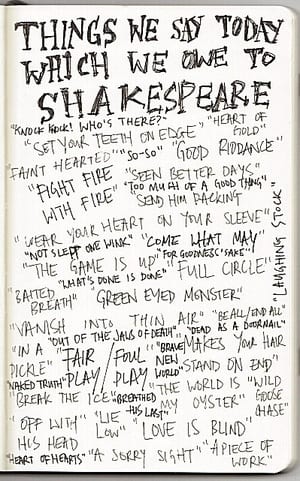
2. Moons of Uranus
There are 27 moons of the planet Uranus. Most of them have been named after famous characters from Shakespeare’s plays such as Puck , Oberon , Titania , Miranda, Ariel, Caliban , etc. Anyone learning the names of these moons will definitely look up Shakespeare, and thus, his influence and reach become cosmic!
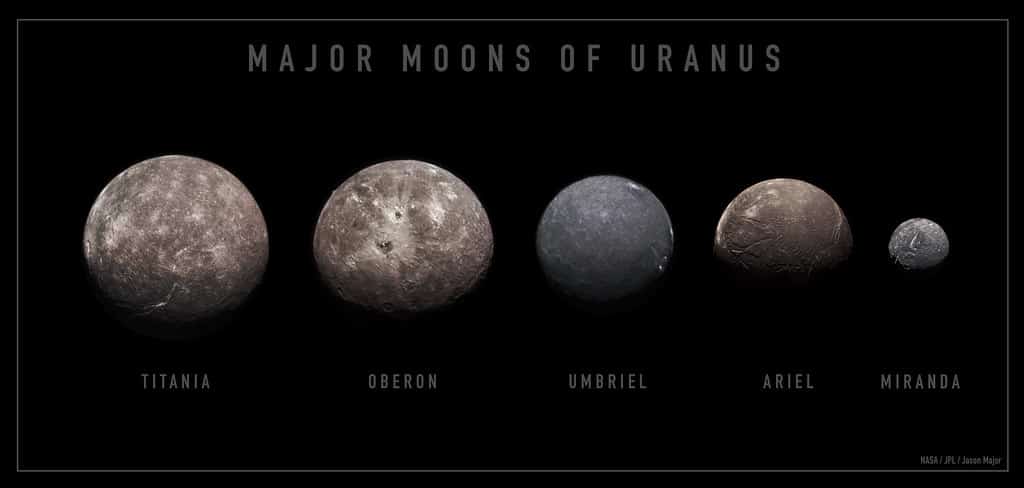
3. Controversies around Shakespeare
Like every other good thing and person, Shakespeare is also surrounded by controversies that keep his name circulating in the news. There are several people who believe that Shakespeare didn’t write the poems and plays that bear his name today .
The controversy over Shakespeare’s authorship arose in the 1850s, almost 200 years after his death. William Henry Smith, a British bookseller, and Delia bacon, an American author, published their arguments as they contested his works. Many folks ask why Shakespeare is still relevant.
They suggested that the poet Walter Raleigh and the philosopher Francis Bacon are more likely to be the real writers of Shakespearean works like Romeo and Juliet, etc. On the other hand, there are various people who believe that the works of Shakespeare are entirely his own.
4. Shakespeare – A profitable brand
Shakespeare’s likeness was first used in 1710 by Jacob Tonson as the corporate logo for his bookshop. Since then, the strength of Shakespeare as a brand has continued to grow, and his influence is ubiquitous. His work and likeness have been used to sell everything from cigarettes to computers and from chocolates to beers!

5. Shakespeare’s Likeness – A mystery
To this day, we don’t know how Shakespeare actually looks like. His image has been reproduced several times . However, all the printed portraits of Shakespeare that we see along with his works don’t date back to his lifetime.
The image that most of us know and are familiar with is was engraved by Martin Droeshout. It was printed for the first time in 1623 on the 1 st edition of the First Folio, a collection of Shakespeare’s plays . However, several people are of the belief that the editors of the First Folio were colleagues and friends of Shakespeare; thus, they knew how he looked like, and the portrait is really of Shakespeare himself.
However, it still remains a historical mystery!

6. Universal and enduring characters
The works of Shakespeare are hilarious, pithy, and emotional. He was a master when it came to imbuing his characters and stories with qualities and traits that the readers and audiences definitely identify with. You can see various Macbeth essay examples online and see for yourself how relatable his character of Macbeth is.
The love between Juliet and Romeo, the anguish that hamlet felt, Macbeth’s craziness, the distress of Ophelia; we can relate with all of these at some points in our lives. His characters depict the emotions of common humanity.
The Final Word
The relevance of Shakespeare is timeless, and his relevance in the 21 st century can’t be denied. He is popular today for all of the above reasons, and because he understands how a human mind works as well as – or better than – any other writer.
He portrays the most complex themes of human life with such ease and prowess; the way Shakespeare depicts murder, ambition , love, revenge , betrayal , and hatred , flames the fire within our own souls.
Our beliefs, assumptions, and prejudices are constantly challenged by Shakespeare. He created profound and complex characters that are extraordinarily heroic, irredeemably villainous, gut-wrenchingly tragic, and immediately identifiable.
After reading this article, it is easy to see how William Shakespeare is still relevant. With a fusion of prose, blank verse, and poetry, Shakespeare remains woven into the fabric of the English language, and will continue to be popular as long as time exists.
- Pinterest 0
Leave a Reply
Leave a reply cancel reply.
Your email address will not be published. Required fields are marked *
Save my name, email, and website in this browser for the next time I comment.


Why Shakespeare's plays remain relevant in the 21st Century
School's back, and so too is Shakespeare. Indeed, Shakespeare is the only author named in the NSW English K-10 Syllabus . Highschoolers must study one of his plays in Year 9 or 10.
Will it be an old favourite, such as A Midsummer Night’s Dream or Romeo and Juliet , or another of the 36 plays collected in Shakespeare’s First Folio? Last year, to celebrate the First Folio’s 400th anniversary, people flocked to libraries and museums to marvel at this 900+ page book that has become one of the most influential works published in English.
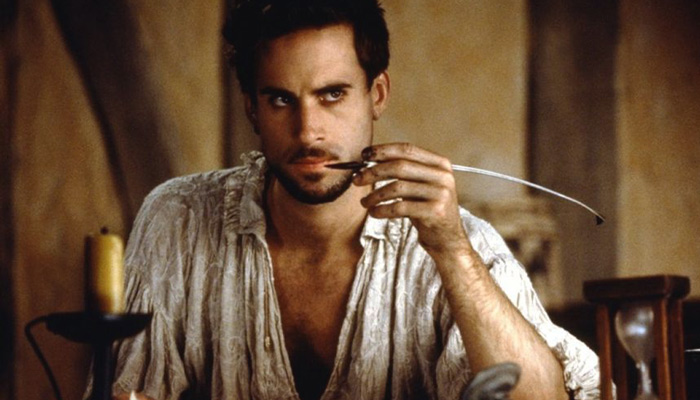
Compulsory in the classroom, popular beyond it. Why do we feel that Shakespeare is relevant to us in the twenty-first century?
My book, Shakespeare, the Reformation and the Interpreting Self , explores how Shakespeare seems to get our need to know. His plays speak to our need to know the truth, to know what to do in tricky situations and to know ourselves – as well as our yearnings to be known.
More specifically, I argue that Shakespeare captures our modern (Western) assumption that who we are and our relations to the people and things we seek to understand function as interpretive filters which affect this knowledge. These interpretive filters shape how we go about satisfying our desires to know and be known. We each stand between our own need to know and what we think we know about ourselves, others, and the world.
Because we take for granted that we know through interpretation, modern people are what I call ‘interpreting selves’. And so also, it seems, are Shakespeare’s characters.
I begin my book with Hamlet’s pressing need to interpret and understand himself: ‘Am I a coward?’
Hamlet has met the ghost, the spitting image of his father. Your uncle murdered your father, the ghost claims, before it commands the son to take revenge. Hamlet delays.
Is he chickening out, or is his inaction reasonable, given that he does know his own fallibility as an interpreter and that he does not know if the ghost is telling the truth? This is an urgent question, not only for Hamlet, but also the play’s audience.

Know thyself: Dr Roberta Kwan, pictured above, argues that the questions Shakespeare has his characters ask themselves continue to provoke audiences to try to make sense of what it means to be human. Image: Samantha Christensen
Can we pin responsibility on Hamlet as a free human agent who should be able to make sense of himself and his situation, and know how to act? Or is he so subject to forces beyond his control that we should absolve him of blame? This issue of human responsibility is, of course, all too familiar today. Time after time we ask similar questions about real life interpreting selves, questions that often provoke judgements that land uncompromisingly on one side or the other.
I argue that we can gain some insight into why Shakespeare’s plays feel relevant to our own circumstances and concerns by tracing the modern interpreting self back to events of Shakespeare’s own age. These events centred on what many people consider the most influential book published in English: the Bible.
For most sixteenth and seventeenth century people, the Bible contained knowledge of ultimate importance: knowledge of God and knowledge of oneself. But who was authorised to access, read and interpret the Bible?
All people, not just the authorities within the Roman Catholic Church, the sixteenth-century Protestant Reformers (think Thomas Cranmer of Wolf Hall fame) insisted. Cranmer and co also overturned prevailing ideas about how much agency humans have when it comes to knowing God and oneself. The Reformers’ campaign split the West in two. It also meant that individuals, including Shakespeare, could own, read and interpret the Bible for themselves.
It’s hard for us to grasp how culture-changing these events were. But their legacy includes Shakespeare’s interpreting selves and our own assumption that we are interpreters of knowledge.
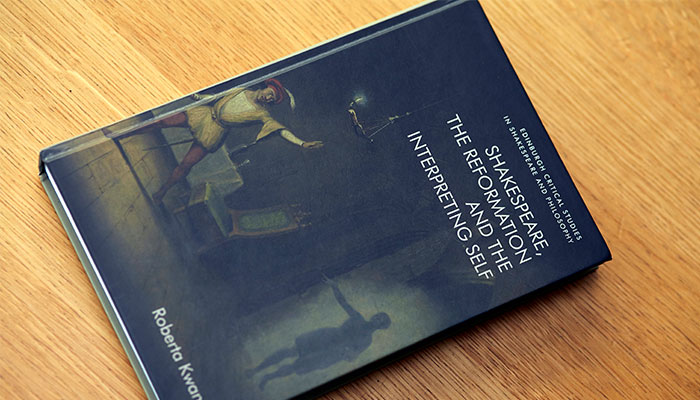
That’s not to say that we can neatly map today’s interpreting self onto the Reformers' version. My explorations of the complex ways that Shakespeare interacted with the Reformers’ ideas show that these ideas sometimes affirm modern thinking about who we are. But sometimes they challenge our beliefs, especially when it comes to the big question of human agency.
Which brings us back to Hamlet. Is he answerable for his (mis)interpretations and their consequences? I argue that Shakespeare and the Reformers would answer neither ‘absolutely yes’ nor ‘absolutely no’. Rather, they would urge us to adopt an empathic interpretive stance that acknowledges just how difficult it is for Hamlet, and for us, to know.
Dr Roberta Kwan is an Honorary Postdoctoral Fellow in the Department of Media, Communications, Creative Arts, Language and Literature.
Shakespeare, The Reformation and the Interpreting Self is published by Edinburgh University Press.
Recommended Reading


Shakespeare and the Urgency of Now
Criticism and Theory in the 21st Century
- © 2013
- Cary DiPietro 0 ,
- Hugh Grady 1
University of Toronto Mississauga, Canada
You can also search for this editor in PubMed Google Scholar
Arcadia University, USA
Part of the book series: Palgrave Shakespeare Studies (PASHST)
1726 Accesses
5 Citations
1 Altmetric
This is a preview of subscription content, log in via an institution to check access.
Access this book
- Available as EPUB and PDF
- Read on any device
- Instant download
- Own it forever
- Compact, lightweight edition
- Dispatched in 3 to 5 business days
- Free shipping worldwide - see info
- Durable hardcover edition
Tax calculation will be finalised at checkout
Other ways to access
Licence this eBook for your library
Institutional subscriptions
Table of contents (10 chapters)
Front matter, introduction.
- Cary DiPietro, Hugh Grady
Presentism, Anachronism, and Titus Andronicus
The presentist threat to editions of shakespeare.
- Gabriel Egan
Shakespeare Dwelling: Pericles and the Affordances of Action
- Julia Reinhard Lupton

Performing Place in The Tempest
Cary DiPietro
Green Economics and the English Renaissance: From Capital to the Commons
- Charles Whitney
“Consuming means, soon preys upon itself”: Political Expedience and Environmental Degradation in Richard II
- Lynne Bruckner
“What light through yonder window speaks?”: The Nature Theater of Oklahoma Romeo and Juliet and the Cult(ure) of Shakespeare
- W. B. Worthen
Reification, Mourning, and the Aesthetic in Antony and Cleopatra and The Winter’s Tale
The hour is unknown: julius caesar , et cetera.
- Mark Robson
Back Matter
- 21st century
- bibliography
- Ecocriticism
- environment
- history of literature
- performance
- phenomenology
- Renaissance
- William Shakespeare
- British and Irish Literature
About this book
Editors and affiliations, about the editors, bibliographic information.
Book Title : Shakespeare and the Urgency of Now
Book Subtitle : Criticism and Theory in the 21st Century
Editors : Cary DiPietro, Hugh Grady
Series Title : Palgrave Shakespeare Studies
DOI : https://doi.org/10.1057/9781137017314
Publisher : Palgrave Macmillan London
eBook Packages : Palgrave Literature Collection , Literature, Cultural and Media Studies (R0)
Copyright Information : Palgrave Macmillan, a division of Macmillan Publishers Limited 2013
Hardcover ISBN : 978-1-137-01730-7 Published: 19 July 2013
Softcover ISBN : 978-1-349-43705-4 Published: 01 January 2013
eBook ISBN : 978-1-137-01731-4 Published: 19 July 2013
Series ISSN : 2731-3204
Series E-ISSN : 2731-3212
Edition Number : 1
Number of Pages : XXII, 212
Topics : British and Irish Literature , Poetry and Poetics , Early Modern/Renaissance Literature
- Publish with us
Policies and ethics
- Find a journal
- Track your research
Pursuit home
- All sections
Why Shakespeare still matters
The Bard’s enduring popularity proves that even four centuries after his death, he can teach us much about tackling humanity’s great questions
By Dr David McInnis, Gerry Higgins Lecturer in Shakespeare Studies, Faculty of Arts, University of Melbourne
Shakespeare would be amused at how famous he is in 2016. Before anything else, he was a businessman: an actor, a shareholder in his company, as well as a playwright whose priority was to sell tickets. Half of his plays weren’t even published during his lifetime.
Now his legacy is all around us, from The Simpsons and Doctor Who , to movies such as Shakespeare in Love . Too bad he didn’t live to see the royalties.
To understand who we are, we need to understand where we came from.
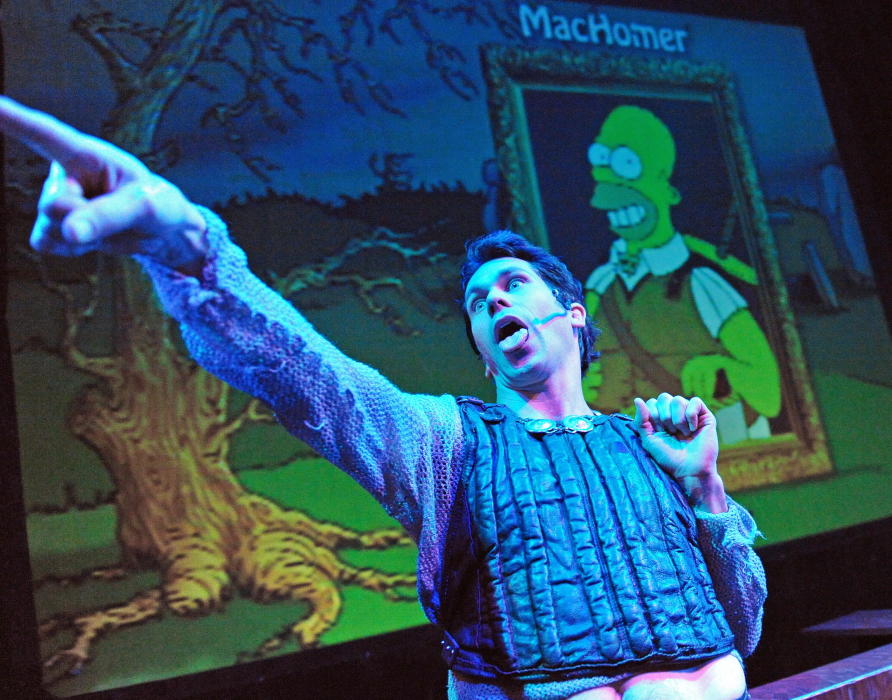
You don’t have to live in England to see Shakespeare’s influence everywhere you look. Shakespeare’s plays were amongst the precious few books brought to Australia by Captain Cook on his ship, The Endeavour . A note on the back of Australia’s oldest surviving print document tells us that Richard III (probably Shakespeare’s play) was performed as early as December 1793 on Norfolk Island. Shakespeare is embedded in our history.

- Shakespeare 400 Melbourne
His plays were performed consistently in Australia throughout the 19th and 20th centuries, and remain some of the most frequently adapted stories in Hollywood.
Film producers could rely on familiarity with Shakespeare’s work, and use it as a licence to experiment with form. Some of the earliest silent pictures were of Shakespeare plays. King John , for example, made it into film as a short feature as early as 1899 . A silent Midsummer Night’s Dream ( 1909 ) was an early leader in special effects, making its fairies fly and disappear on film.
Shakespeare provided the vehicle for social commentary: in the 1956 sci-fi cult classic, Forbidden Planet (starring a very young Leslie Nielson), the “new world” of Shakespeare’s The Tempest is literalised as “new worlds” in the context of the space race concerns of the mid 20th century.
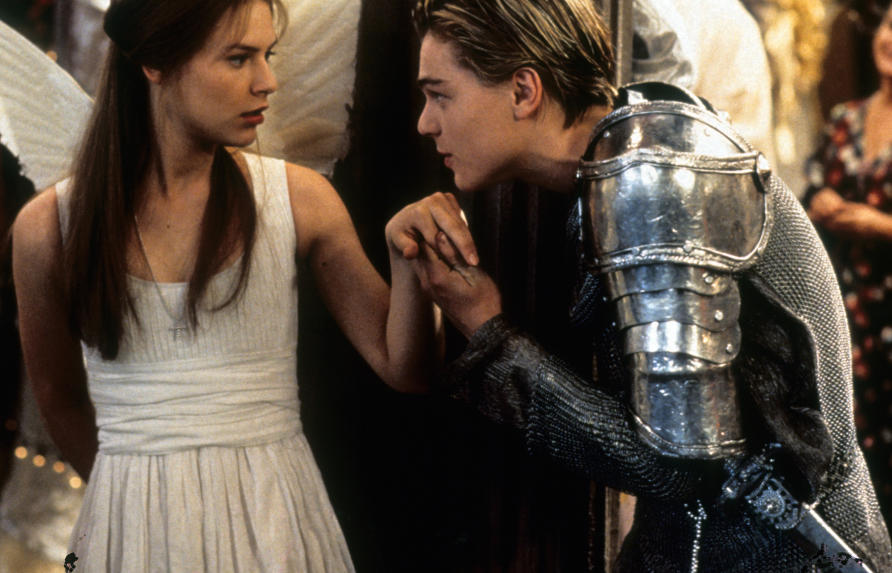
Screen violence reached new heights in Roman Polanski’s Macbeth (1971); a film made in the wake of the director’s pregnant wife having been murdered by the Manson Family. And for stylistic innovation alone, Baz Luhrmann’s Romeo + Juliet is impossible to ignore.
There is also a quirky side to Shakespearean history. The common starling, an introduced pest in the United States, owes its introduction to a group of Shakespeare enthusiasts, who in 1890 thought it would be nice to release into Central Park every bird named in Shakespeare’s plays.
And if you believe American Shakespeare scholars, Shakespeare also helped the Allies win World War II. Shakespeare scholar Charlton Hinman was working on the numerous and minute differences between printed copies of Shakespeare’s works when America entered the war and he became a naval cryptanalyst. His interest in the printing of Shakespeare’s plays and in analysis of aerial photographs of pre- and post-bombing sites led to the creation of the “ Hinman Collator ”: an optical machine enabling rapid comparison between two virtually identical documents. Vital technology for winning the war thus owes a debt to Shakespeare, in a way.
But why should we continue to see Shakespeare’s plays and to read his work?
For some, the beauty of his language and the relatable characters he created is enough. His fellow playwright and friend Ben Jonson described Shakespeare as “ not of an age, but for all time ”. When we think of romance, we think of Romeo and Juliet . When we think of the dangers of ambition or of ruthlessness in politics, we think of Macbeth and Richard III . When a comical mix-up takes place we still refer to The Comedy of Errors with its confusion of not just one set of twins, but two.

For others, there is an instrumental value in studying Shakespeare. Sure, we live in an age of blogs and tweets, but those who can think in long-form can also write concisely. The converse isn’t necessarily true. Shakespeare offers stimulating examples of complex material that helps hone our critical thinking skills. After studying the construction of racial identity and prejudice in Othello – a play in which racial Otherness was literally constructed in Shakespeare’s day (just as gender was) by a white male actor using cosmetics and gestures – we are better equipped for analysing the motivations and strategies of racist thought in contemporary society.
There has never been a better time to enjoy Shakespeare. We are not precious about his work anymore: actors don’t have to feign English accents or wear tights. To focus on just a single play, think about the infinite variety of interpretations that Macbeth has produced. In the classic 1957 Japanese film Throne of Blood , Akira Kurosawa located Shakespeare’s story within the influence of Noh theatre and a Japanese aesthetic emphasising the inevitability of karmic fate.
Celebrating 400 years of Shakespeare
He reimagined the Scottish warlord as a samurai warrior (Washizu, played by Toshirô Mifune) who rises to the rank of Great Lord of the Spider’s Web Castle after he receives a prophecy from an eerie forest-spirit and is manipulated by his even eerier wife (Lady Asaji, played by Isuzu Yamada).
In the BBC’s Shakespeare Retold series of the early 2000s, barely a word of Shakespeare’s text survives as “Joe Macbeth” (James McAvoy), an aspiring chef, is tempted to kill the head chef and take over the kitchen himself.
In 2012, the ridiculously talented Alan Cumming performed Macbeth essentially as a one-man play, set in a Victorian-period mental institution – what one critic called “ a kind of schizophrenic nightmare ”. And of course, in the post- Downton Abbey infatuation with period drama, director Justin Kurzel has most recently returned us to a pseudo-historical setting of a rugged Scottish landscape as cold as the hearts of the characters it dwarfs, in his 2015 film starring Michael Fassbender and Marion Cotillard.

Arguably what makes Shakespeare’s work so enduring is that he doesn’t provide easy answers. He does not tell us what to think; he teaches us how to think. His characters and the situations they find themselves in are complex; complex enough to warrant continued investigation four centuries later.
Were Romeo and Juliet’s parents cruel, or were they being responsible and pragmatic in looking after their children’s long-term interests? Should Hamlet have trusted his instinct and acted decisively, or was he wise to delay until he thought he had proof? Or as King Lear’s decision to divide his land but retain the crown prompts us to consider, does power reside in a title or in actions?
The questions of identity, race, terror, sex, violence, religion and gender raised by Shakespeare’s plays continue to be hotly debated in contemporary culture, though rarely with the subtlety and intelligence found in Shakespeare. In wrestling with the provocative questions and scenarios Shakespeare created, we question our own assumptions and beliefs, clarify our own thoughts, and become better thinkers. And as the vast diversity of film and stage performances suggests, we continue to have fun in the process.
Related content
Banner Image: Shani Thorpe/Flickr
Why Is Shakespeare Still Important?
31 Jan, 2024
Few people deny that he’s one of the most important writers to have ever lived – but why?
In a world in which ‘everyone is writing a book’ (Cicero said that all the way back in around 100 BC, and it’s still true today, two thousand years later), why is Shakespeare one of the few names that continues to resonate through the centuries?
Before we launch into his work and legacy, here’s a quick biography of the man behind the plays.
Table of Contents
Who was William Shakespeare?
William Shakespeare was born in Stratford-upon-Avon, England, all the way back in 1564. The Shakespeares weren’t a noble family, but his father did hold positions in local government and William was probably sent to the local grammar school as a child. At eighteen, he married a woman called Anne Hathaway (not that one!), and later moved to London. He made a name for himself as an actor and then as a playwright in the capital. He lived between London and his hometown, while his wife and kids stayed in Stratford.

4 reasons why Shakespeare is still relevant today
1. shakespeare’s themes.
A lot of Shakespeare’s plays deal with really big, universal themes. Things like life, love, death and betrayal. He might write about them in slightly funny language and in the context of an England that existed 400 years ago, but they’re topics that we can still relate to today.
One of the best-known speeches in the world begins ‘To be or not to be.’ It sees a young man struggle with questions of death and the afterlife in the face of crippling grief. You can set the monologue in any context, at any time and in any place; the emotion and rawness of the words will still resonate deeply with the audience. Similarly, Romeo and Juliet’s professions of love are amongst the most beautiful in the English canon. And their story of a forbidden relationship is one with which many modern audience members can still sympathise. The topics that Shakespeare explores in his plays, then, are things that everyone throughout history can relate to. The fact we continue to identify with situations he writes about is one of the biggest reasons we still read him so widely today.
2. Shakespeare’s characters
The themes covered in the plays are universal, but the relatability of the characters is even more impressive. It’s not difficult for modern audiences to see themselves reflected in at least one character in any given Shakespeare production, even though they were written around the turn of the 17th century. How remarkable is that!
Viola, Sebastian and Duke from She’s the Man are all believable high schoolers in the mid-2000s, but they’re actually based on characters from Shakespeare’s play Twelfth Night . Creating men and women who are able to slot into modern American football teams, or wield pistols instead of swords is no mean feat, but Shakespeare achieved it over and over again. His characters are beloved, despised, laughed at and most importantly remembered for their relatability.

3. Shakespeare’s impact on linguistics
For those with an interest in learning the English language more than reading its literature, Shakespeare is still important. This is because of his contributions to the development of words and phrases that are now used on a daily basis. Shakespeare played a really important part in molding the language we speak today. If you’ve ever said ‘all of a sudden’, or spoken about jealousy as ‘the green-eyed monster’, then you have Shakespeare to thank. He even came up with whole new words – 422 of them , in fact, including bump, lonely and upstairs. That’s not to say we’d still be without words for these things if Shakespeare had never written. But the sheer number of new words and phrases he coined makes him a core figure in the development of our language.
4. Shakespeare’s impact on theatre
For many modern actors, acting in the main role in a Shakespeare production is a career-defining and impressive achievement. The Globe Theatre, the Elizabethan playhouse for which he produced his plays, is still an icon of London’s rich cultural history.
Watching a Shakespeare play live on stage is an experience like no other. You’re sure to find productions of his plays nearby, wherever you live, but there’s nothing quite like an open-air production to really capture the original magic. If you enrol in our Oxford summer course , you’ll get to watch a play performed live in the ruins of the ancient Oxford Castle and Prison , or you could watch a play in the reconstruction of Shakespeare’s own Globe Theatre on the Southbank.
What can we learn from Shakespeare’s plays?
Shakespeare’s plays offer timeless insights into human nature, society, and the complexities of relationships.
Through his masterful storytelling, we learn about the enduring themes of love, power, jealousy, betrayal, and the human condition. His characters, from the tragic hero to the comic fool, provide a mirror to our own lives, teaching us about empathy, understanding different perspectives, and the consequences of our actions.
Shakespeare also enriches our understanding of language and its power, showing how words can convey deep emotions, create vivid imagery, and express complex ideas.
Interested in more classic literature?
- Take a look at these classic books that everyone should read!
- For a more immersive experience in English literature, consider attending a Summer School in Oxford , where you can delve deeper into these timeless works and prepare for university-level studies in English Literature.
- Explore some further English literature reading list suggestions for those interested in studying English Literature at university.
What are your writing aspirations?
If you’re an aspiring writer or interested in studying English, explore our Writing Summer School in Oxford. You’ll be immersed in the creative atmosphere of Oxford, a hub of inspiration for writers, and surrounded by like-minded students from around the world. Discover more about the Oxford Scholastica Academy!

COMMENTS
world even in the 21st Century not because Shakespeare is famous but because his characters feel very vivid and alive to viewers. While they may be kings, queens and princes, they struggle with the same issue that many playgoers do, and characterizations on the stage which people can associate with. Relevance of Shakespeare in the 21st Century
connected with public funding, theatre and Shakespeare in order to be able to identify which values are unique to Shakespeare and which can be attributed to the environment in which he is situated. 4 Terry Eagleton, „Afterword‟ in The Shakespeare Myth, ed. by Graham Holderness (Manchester: Manchester University Press, 1988), pp. 202-8 (p. 206).
Let's take a look at a few reasons why Shakespeare still remains relevant after all these years: 1. Influence on the English Language. The influence that Shakespeare has on the English language had very deep roots. We use several words daily that was first used by Shakespeare.
the twenty-first century, "Shakespeare" is oft positioned as a socio-cultural concept with the man almost forgotten amidst the terminology that surrounds the criticism, tourism, adaptation, and utilization of his plays. ... true to the text or introduced his relevance to young people. In other words, integrity was encouraged and there was very ...
international scale. If we limit our discussion to India, the headlines of the new papers are rife with the same issues. Shakespeare still has a following. Shakespeare: Contextuality in 21st Century Shakespeare greatly enriched the English language by creating words to describe previously inconceivable things.
Shakespeare's use of irony exposes the characters' prejudices and biases, while also highlighting the tragic consequences of their actions In addition to this, Shakespeare's works continue to be relevant and influential in the 21st century due to his ability to depict universal human experiences in a way that is both timeless
Twenty-first century Shakespeare and ELT. March 2013. ELT Journal 68 (2):192-195. DOI: 10.1093/elt/cct077. Authors: Chris Lima. University of Leicester. Citations (2)
Reframing Shakespeare in 21st Century Edited by Shravan Kumar, G A Ghanshyam, Harleen Kaur. March 2018. Publisher: Atlantic Publishers & Distributors. ISBN: 978-81-269-2755-5. Authors:
A new book by English literature scholar Dr Roberta Kwan argues that Shakespeare's tales remain a powerful influence more than four centuries after his death partly because they tackle our need to know what to do in tricky situations. School's back, and so too is Shakespeare. Indeed, Shakespeare is the only author named in the NSW English K-10 ...
"In this volume Cary DiPietro and Hugh Grady have assembled a rich array of scholars to display the relevance of Shakespeare through sustained presentist readings of his work. … Shakespeare and the Urgency of Now will be of interest to scholars working on contemporary Shakespeares." (Rachel Willie, Modern Language Review, Vol. 111 (3 ...
Shakespeare In The 21st Century Why the Bard's works haven't lost their relevance in 400 years - and never will The Bard of Avon has written some of the most influential works ever penned. In 2016, 400 years after his death, they continue to play a capital role in our lives. Shakespeare in other languages
Shakespeare would be amused at how famous he is in 2016. Before anything else, he was a businessman: an actor, a shareholder in his company, as well as a playwright whose priority was to sell tickets. Half of his plays weren't even published during his lifetime. Now his legacy is all around us, from The Simpsons and Doctor Who, to movies such ...
appropriate to discuss the statistical analysis of Shakespeare as a pedagogical concern. Broadly speaking, statistics have been brought to bear in Shakespeare studies in two ways. The first approach does a statistical analysis of Shakespeare's text itself, while the second involves a statistical consideration of Shakespeare's reception.
Shakespeare has now assumed the dignity of an ancient and claims the fame and veneration of a great master of the 16th century English literature, yet having lived even five centuries today, his literature is relevant even to the 21st century. One of the chief reasons of his relevance to this
When Shakespeare started writing one after another of his plays, the English language was continuously changing and achieving new vocabularies and phrases. In this rhyme of change, Shakespeare got an enduring recognition on the English language through his usage of new concept, words and phrases in his plays [22]. In order for his
4 reasons why Shakespeare is still relevant today. 1. Shakespeare's themes. A lot of Shakespeare's plays deal with really big, universal themes. Things like life, love, death and betrayal. He might write about them in slightly funny language and in the context of an England that existed 400 years ago, but they're topics that we can still ...
In the 20th century, his work was repeatedly adopted and rediscovered by new movements in scholarship and performance says Bradbrook, m. c. (2004). His plays remain highly popular ... the importance of studying Shakespeare's style of writing and neglect analyzing the audience responses to his work (how the readers felt after ...
As long as human beings survive, Shakespeare's relevance is timeless because he has a better understanding of the human psyche than any other writer. He wrestles with the most complex themes ...
Textile Shakespeare and she is also writing a new introduction to Romeo and Juliet for the New Cambridge Shakespeare. is Lecturer in English at the University of Hull. He is the author of Narrating the Visual in Shakespeare, and co-editor of Shake-speare's Book: Essays in Reading, Writing and Reception, The Renaissance
In the 21st century, Shakespeare‟s works have been . migrated from websites to mobile applications. Similar to the . medium like film, comics, television and websites, mobile . applications . developers. have recognized the educational . value . in teaching Shakespeare. Numerous . Shakespeare-related apps are produced such as audio books,
still relevant in the 21st century. Shakespeare holds a mirror to human nature and to society. So, Macbeth is not only a story of an ambitious man but it narrates the psychology of every person who wants to be powerful by any means. Even the modern man acts with the psychology of Macbeth and Lady Macbeth, and persons like Banquo are murdered.
Teaching and learning Shakespeare takes place across the world. Pedagogical matters have been the subject of much discussion in the last few decades. This article begins by reviewing that discussion, showing how different approaches - textual, contextual and active (or performance) - connect with the language of the plays. No study, it is pointed out, has conducted an empirical ...
Hema Dahiya's Essays on Shakespeare: Texts and Contexts has at its heart a study of two empires: the British Raj in the nineteenth century, and the rise and spread of Imperial Rome. Brought together by Shakespeare, and hinged by a pair of chapters on the poet's own garden and on his most famous play, the two are put in dialogue with each other.